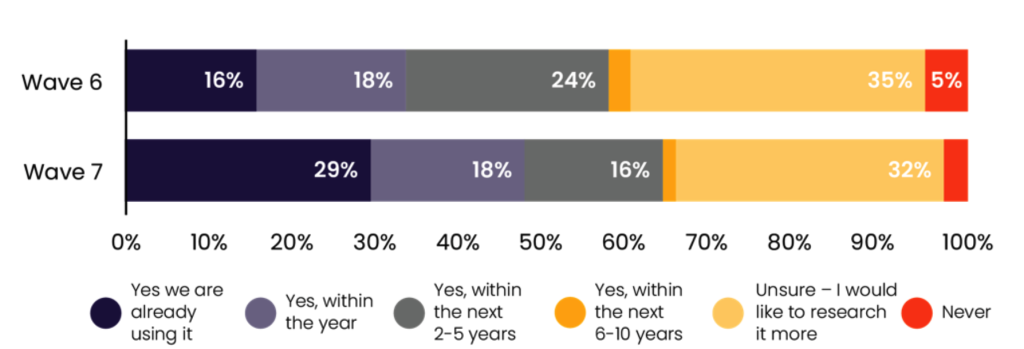Steve back on Update duty. I had my first meaningful work interaction with Artificial Intelligence yesterday and I want to talk about it. But first, like any totally normal individual, I need to talk to you about the nature of infinity and the implications on a potential multiverse.
One of the most debated topics in cosmology is whether the expanding universe is going to expand forever. Some very clever people say aye. Some seemingly equally clever people say nay. But if it is indeed infinite, then the very nature of infinity strongly suggests that there’s an infinite number of instances of each of us pottering away in the cosmos somewhere. There’s a version of you writing TCWU. A version of me qualifying for the second round of the French Open. And a version where we’re all just, y’know, getting along.
SLIDING DOORS
I suppose a more pragmatic way of looking at this is to examine your own life and muse on the different ways it could have easily branched off in different directions. One such splinter in my own personal metaverse happened in the summer of 2000. I’d barely scraped a pass in year one of my joint honours Computer Science and Artificial Intelligence degree at Edinburgh University. Two big subjects? Too much.
I can’t even remember the logic now, but AI got the chop and that was that. I guess that’s my way of saying that there’s a version of reality where I stuck at it. Grafted away on the old AI and became an expert. Maybe some of my PHD got erased and I’m now a tortured genius. Or one of those LinkedIn guys doing LinkedIn guy AI things.
AN OLD MAN CATCHES UP
Alas no, fast forward 25 years to Tuesday 27th May 2025 and I’m plain old current-reality Steve looking for inspiration for a Top Class Wednesday Update. It came in the form of my first meaningful interaction with AI in a work context. Pushed for time and looking for a way to wade through a number of transcriptions of anonymised conversations, I boshed one into an AI tool and asked it to summarise some key points.
I remember vividly how I felt the first time my mate Derek handed me an MP3 player with a few hundred tracks on it. I remember the first time I tried John Wick on a virtual reality machine and fell over trying to lean on a weapons case.
And for sure I’ll remember Tuesday 27th May when AI saved me hours and hours of time with the extraordinary job it did of summarising what, to me, felt like sprawling, multi-layered conversations, sending back something that was precisely what I had in mind for the output.
Listen, I know I’m behind the curve on this. Life comes at you fast folks and I’ve barely dedicated a stitch of time in this instance of the universe with everything else I’ve got going on.
The advice profession on the other hand is well ahead of me on this and is moving at pace. Faster than anything else I think we’ve monitored since I’ve been at the lang cat. The image you see here from this year’s SOTAN asks for levels of artificial intelligence adoption within firms. A one-year shift, nearly doubling AI usage from 16% to 29%, is huge. And it looks like nearly half of the profession will be using AI in some shape or form by the end of the year.

I can’t believe I’m at the age where rather than react with excitement to this, I have to be honest with you, my main reaction is of caution. Not long after the sugar rush of my experience yesterday I started to think about the implications of some of this stuff. Who ‘owns’ the data? A big whack of these AI tools are startups and therefore susceptible to inevitable M&A activity down the line. What happens if you become too reliant on one? What does best practice look like for research and due diligence when so much of this is moving so quickly. Am I too cautious? Or am I the head of proposition development at Blockbuster, giggling nervously as I peruse the Netflix catalogue for the first time.
I might be rubbish at AI and Computer Science but here comes 20 years of marketing experience. See if you can spot it coming. Have you guessed yet?
These are some of the questions I hope our High Inquisitors ask at our Catwalk event next week. (Smooth Steve, well done). I want them to give the new technology a good old grilling, in the politest sense of course. Shiny new tools are awesome. The people developing them are always, always fabulous. But the cornerstone of this instance of our universe are the real people with real data and very real financial goals, aspirations and vulnerability. This, above all is why we all do what we do. We need to tread carefully.
There are a tiny handful of tickets left for our tech event next week and we’ve not long announced the five awesome-looking new bits of kit (not all are AI-driven) that will be showcased on the day. See you there.
Thanks for reading.
Steve





